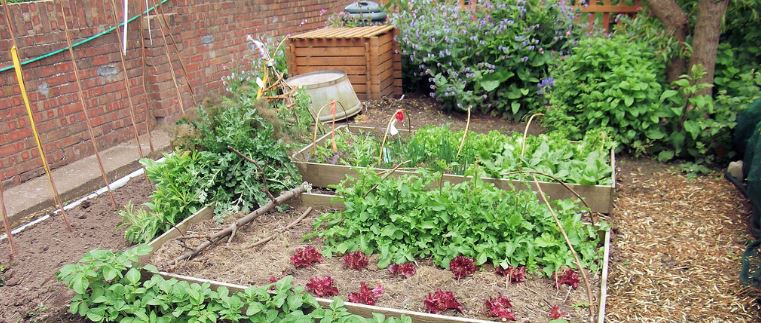
Lead dust from paint from homes built 50 years ago to 150 years ago can still contaminate the soil in your yard. Live in an older neighborhood? Order a lead test for your soil.
Who should be concerned about lead levels in their soil?
Parents and Parents-To-Be Should be Concerned About the Presence of Lead in Their Soil
Older sections of cities are always riddled with empty lots where homes and business properties had been demolished. Those empty lots where buildings were painted with lead based paint are often contaminated with dangerously high levels of lead. Plain and simple-young families, be warned of the possibility the neighborhood where you live or are considering to move to may have high concentrations of lead in the soil.
The reason for the lead-based paint law (LBP) is that most structures built prior to 1978 were painted before paint (for residential use) was forbidden by law to contain lead. When paint from these older buildings chips and peels, LBP dust, chips, and particles can contaminate the soil and interior portions of a building. Lead contaminated soil and building interiors, like flooring, are a source of health hazards for children. Owners of housing units built before 1978 need to test soil and paint around their buildings.
Lead Can Be Absorbed By the Vegetables in Your Own Garden
Vegetables grown in lead-contaminated soil can have traces of lead, particularly in their roots. The chances of becoming poisoned by edibles in your garden are minimal, however, lead IS a heavy metal known to be toxic and potentially damaging to all organs of the body and blood. There is NO level of lea in the body considered “safe.”
Property Investors: When in Doubt, Have the Soil Tested for Lead.
Why risk it? A soil test is inexpensive and if you’re making a decision to purchase a property, it just makes sense to make the small investment in a soil test.
Lead in soil does not break down. It tends to accumulate in the top two inches of the soil, but it can be found lower in soil that has been tilled. Lead in soil accumulates in very fine particles that can easily stick to clothing and shoes and be inhaled, so lead contaminated soil presents a danger to everyone in the house. Certified soil testing for homes built prior to 1978 is essential.
Children younger than 6 years of age tend to crawl on the ground and place objects in their mouths. Even small exposure to lead can cause children to have learning difficulties, stunted growth, and behavioral issues. Larger levels of exposure to lead can cause a child to go into convulsions or die.
Bay Hill Environmental provides lead certificate and certified soil testing for lead contaminated soil. We serve not only the greater Philadelphia area to help landlords comply with the new lead inspection and lead certification law, but we also serve South Jersey as well as Delaware, Chester, Montgomery, and the Bucks County areas. We test soil and paint in our coverage area.
There are also many people who are considering buying home built prior to 1978 or current homeowners who are considering remodeling an older home. They want to ensure that they are not exposing themselves to hazardous levels of lead, so they call us for lead paint testing and lead soil testing. We are certified and licensed as Lead Paint Risk Assessors in both states, and our coverage area includes South Jersey. Our service is fast, our pricing is low, and we provide quotes right over the phone.




